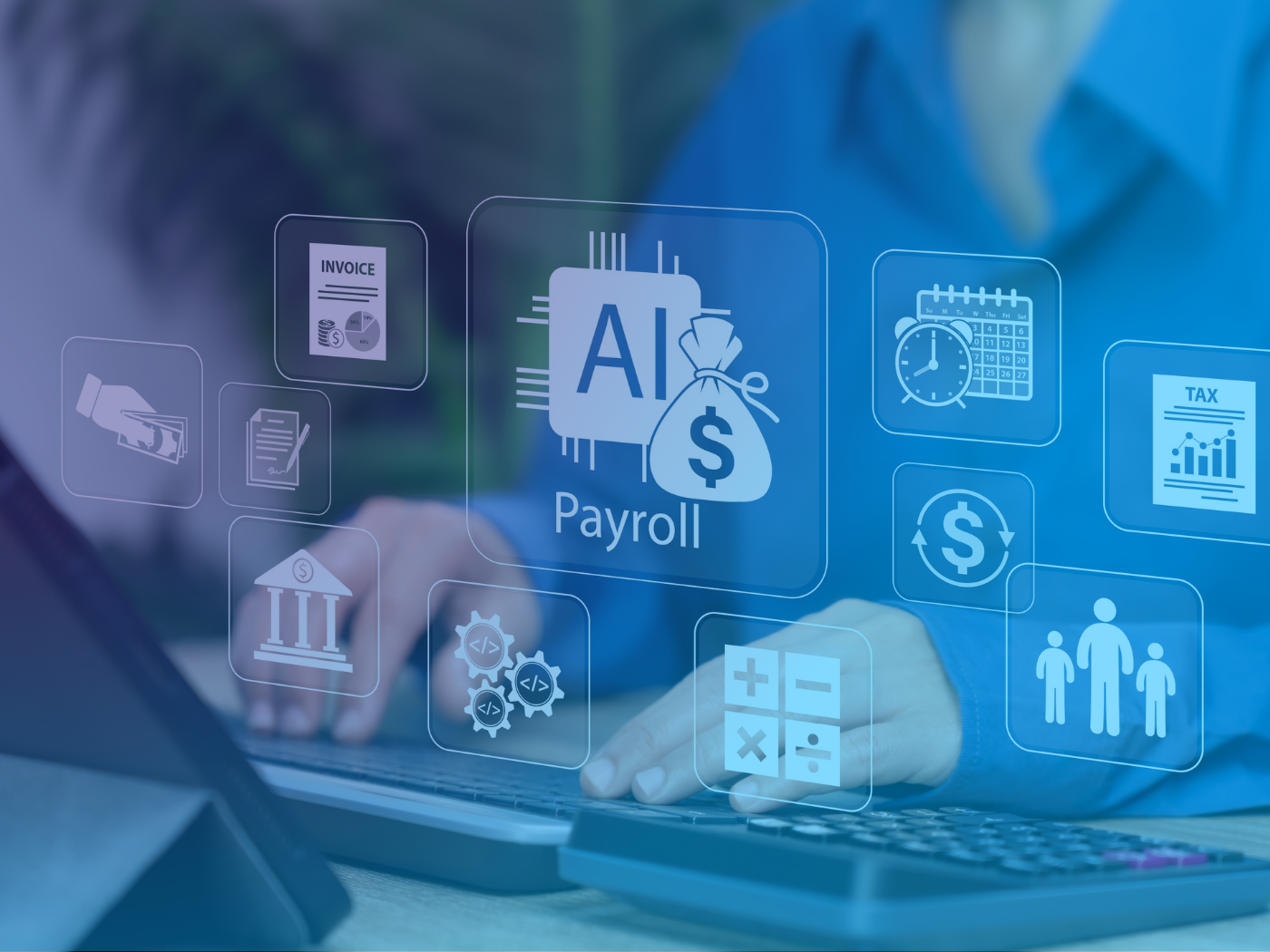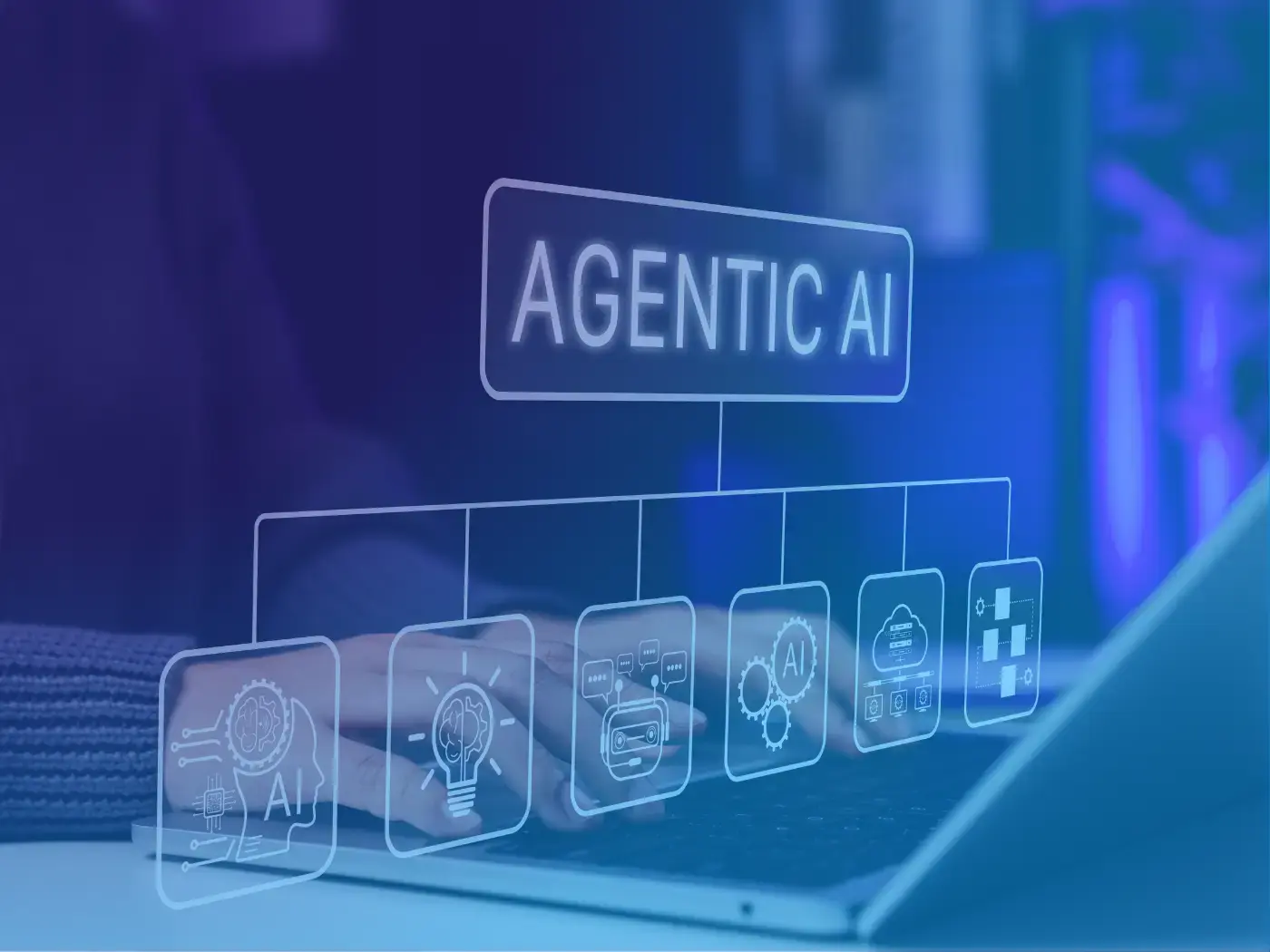AI has become crucial for organizations looking to automate their key operations, and make them faster, more accurate, and cost-effective.
According to a report by Accenture, 69% of executives recognize an urgent need to move beyond simple automation and adopt AI-driven transformations at the core of their business processes.
This report very much aligns to our own research at FlowForma. During our recent AI and Process Automation Briefing event we asked the 100+ participants, all influencial IT leaders, where they were on their AI journey. Given the c-level priority on AI today, the results came as no surprise. The majority of participants, 50% stated that they were either actively using AI or piloting AI features. 45% stated they were exporing AI options and only 5% said that AI was not on their roadmap yet. This data highlights the rapid evolution of process automation platforms and the growing adoption and demand for AI capabilities among IT leaders using these solutions.
Here is the full summary of results below:
- 45% said they are exploring AI options
- 35% said they are piloting AI features
- 15% said they are actively using AI
- 5% said not on the roadmap yet
- 0% said they are cautious/not actively pursuing AI
But how exactly does AI process automation work, and what tools should businesses use? This guide breaks it all down—trends, use cases, and the best AI automation tools to streamline workflows. Let’s get into it.
What is AI Process Automation?
AI process automation leverages artificial intelligence to automate repetitive, rule-based tasks. By combining machine learning (ML), natural language processing (NLP), and process automation, it can handle unstructured data, identify patterns, and make smart, data-driven decisions.
Our recent webinar AI and Digital Process Automation in 2026: An AI Leaders Briefing we introducted the concept of AI in process automation and how people, processes, and agents work together in the new era of AI within process automation.
The webinar recording below will give you a good understanding of how AI has changed the features and functionality of process automation platforms and also the potential of AI to transform the speed of processes, accuracy of data and ROI outcomes from projects with an AI focus.
AI and Digital Process Automation in 2026: An AI Leaders Briefing
For more context, imagine a hospital wanting to generate a patient discharge approval process. In traditional process automation systems, users would have to map out the process and create the workflows and rules such as requiring a doctor’s signature before processing discharge paperwork. However, an AI-powered automation Copilot can create the patient discharge approval process, add in rules, save users time, and resources, and boost efficiency.
Similarly, in financial institutions, AI process automation helps organizations meet compliance standards, such as the Digital Operational Resilience Act (DORA), by leveraging AI for risk monitoring, incident response, and data integrity checks.
I co-hosted a masterclass on this very subject recently. During the masterclass, I explained the evolution of AI within process automation and the very exciting outcomes and benefits the new tools provide. Check out the masterclass recording below to learn more.
AI-powered workflow automation masterclass: from trends to tangible results
A good real-world example of how process automation can be accelerated, comes from facilities management at Bouygues Energies & Services. The team moved paper-heavy routines such as stock management and mobile order requests to digital workflows that staff could use on smartphones in the field.
Hear from Mohladin Amhed of Bouygues Energies and Services
The appeal was speed and simplicity. Internal comparisons showed that processes that previously needed a full day of low-code app work could be stood up in a fraction of the time using a no-code process platform, with one benchmark indicating a four-to-one build-time advantage. This encouraged wider adoption and created cleaner data for reporting and re-ordering.
Beyond complex workflows, AI also eases everyday tasks such as data entry, routing, and approvals. As teams see quick wins, demand to digitise more processes tends to grow, creating a steady path from pilot to scale.
In addition to more complex processes, AI automation also simplifies routine tasks such as data entry, process approvals, and customer service.

CIO roundtable with Chris Skinner
At a recent roundtable event I hosted with Chris Skinner, one of the leading AI experts in financial services, I discussed FlowForma’s own AI strategy. Our AI-process automation approach focuses on addressing customer needs and delivering value by making process creation faster and more intuitive. With outcomes such as advancements in productivity, data accuracy, and decision-making. In the next section I'll cover the common use cases that we see automated by organizations today.
6 AI Process Automation Use Cases

Examples of processes that can be automated with an AI process automation platform
Below are key use cases showcasing how AI optimizes important business functions across various domains:
1. Compliance & regulatory processes
AI-powered systems minimize legal risks and ensure seamless compliance management:
- Contract management: Automates contract analysis and approval workflows
- General Data Protection Regulation (GDPR), ISO & data protection: Ensure compliance by monitoring data activities in real time and flagging any violations of GDPR or ISO.
- Regulatory compliance audits: Monitors industry standards and ensures adherence to audit requirements.
2. Finance & Accounting
AI improves financial accuracy, speeds up processes, and enhances decision-making. It aids in:
- Capital Expenditure (CapEX) and Operating Expense (OPEX) management: Analyzes spending patterns to optimize capital and operational expenditures
- Customer & supplier onboarding: AI-driven risk assessment ensures smooth onboarding
- Travel & expense management: Automate policy compliance and approval processes
- Purchase requisitions: Automates procurement approvals and tracking
3. Human resources (HR)
AI streamlines HR functions such as:
- Performance appraisals: AI-driven tools assess employee performance in real-time
- Onboarding: Automates documentation and training for new hires
- Talent management: Helps in workforce planning, internal mobility, and career pathing
4. Innovation management
AI optimizes innovation processes:
- Project lifecycle management: AI evaluates feasibility, ROI, and strategic alignment for approvals
- E-vetting & tender management: Automates vendor selection, bid evaluation, and risk assessment
- Quality & compliance management: Ensures product and service quality meets regulatory standards
- Document & knowledge automation: Organizes research and prevents redundant efforts
- Trend & market analysis: AI identifies emerging technologies and competitor strategies
5. Manufacturing & supply chain
AI improves supply chain resilience by:
- Predictive maintenance: Prevents equipment failures, reducing downtime
- Demand forecasting: Optimizes inventory by analyzing market trends and historical data
- Automated logistics: Enhances warehouse operations, fleet management, and delivery routes
- Site Inspections & compliance: Automates audits and ensures regulatory adherence
6. IT & Security
AI enhances IT operations, security, and asset management:
- Support ticket automation: AI-powered chatbots assist in ticket logging and resolution
- Device & Software tracking: Automate asset management and software license tracking
- Incident management: manage and respond to IT incidents
- Vendor risk management: FlowAssure automates reviews, scores risks, accelerates approvals and connects cross‑functional workflows.
Benefits of AI Process Automation

AI process automation is changing how businesses operate, making tasks faster and smarter. Here are its key advantages:
1. Increased efficiency
With AI-powered Copilots, process builders can reduce build time from days to hours. In finance For example, a purchase order process can be rapidly built using Copilot, allowing finance teams to shift their focus to more strategic tasks.
2. Workforce productivity
Freeing employees from mundane tasks allows them to focus on high-value work. A McKinsey survey found that Generative AI and automation can potentially save up to 60 to 70% of an employee’s time, boosting productivity.
3. Cost savings
According to a report by ThoughtSpot, 44% of the 1,000 business leaders surveyed reported reduced operational costs due to AI implementation. This proves how process automation technologies are helping with cost savings throughout different organizations.
4. Enhanced accuracy
Manual processes are prone to errors, but AI-driven automation reduces mistakes. A report by McKinsey states that, in supply chain management, AI reduces forecasting errors by 30% to 50%, minimizing stock shortages and overstocking.
5. Digital transformation
AI process automation accelerates digital transformation by automating processes across functions and roles. This leads to enhanced digital transformation outcomes across the business.
Challenges of AI Process Automation
While AI in process automation offers immense benefits, businesses often face hurdles in implementing it. Here’s a breakdown of the key challenges and how to address them:
1. Integration with existing systems
Many businesses rely on legacy systems that don’t easily connect with AI tools. These compatibility issues slow down automation initiatives, leading to inefficiencies. The solution is to choose a tool that connects endpoints effortlessly, providing end-to-end process visibility while integrating with key business applications like SAP, HubSpot, and Microsoft 365.
Modern process automation tools like FlowForma offer native integrations within Microsoft 365 and use prebuilt connectors to unify data across existing systems.

This makes it easier for business and IT teams to collaborate without the delays of custom coding.
2. Data privacy & security concerns
AI-driven automation relies on large volumes of sensitive data, making data privacy and security critical considerations. To mitigate risks, it’s essential to select enterprise platforms that maintain compliance and provide full visibility into every process instance.
For instance, solutions like FlowForma are built on secure cloud environments, such as Microsoft 365, combining encryption, role-based access, and complete audit trails to support compliance with standards like GDPR and the NHS Data Security and Protection Toolkit.
3. Change management
Employees often resist AI automation due to job security concerns, leading to uncertainty and hesitation during adoption. This challenge can be addressed by introducing user-friendly, no-code tools that promote collaboration and gradual learning.
FlowForma empowers non-technical users to build workflows through an intuitive, no-code interface, reducing reliance on IT and making automation accessible to all. Organizations can also roll out automation gradually, encouraging employee involvement and ownership—improving adoption and reducing resistance.
4. Data integrity
Before implementing any new AI technologies, organizations must establish a strong data foundation. Reliable, well-structured data enables accurate insights, informed decisions, and long-term process improvement.
Every process in FlowForma automatically captures clean, structured data that feeds into dashboards and reports. Its AI-driven analytics help detect anomalies, maintain data accuracy, and provide actionable insights in real time—giving teams confidence in their process data and performance metrics.

Top 7 Latest Trends in AI Process Automation
AI process automation is continuously evolving, bringing new opportunities for businesses. Here are the key trends driving AI for process automation forward:
1. Agentic AI
A recent study by EY, stated that found that 88% of survey respondents feel more productive using Copilot. The growth of agentic AI has skyrocketed in 2027 and will continue to transform process automation with accelerated workflow creation in the years ahead.
2. Hyperautomation
Hyperautomation is driving end-to-end automation by integrating AI, robotic process automation (RPA), process mining and data analytics. This term was coined by Gartner, and it also predicts that 30% of enterprises will automate more than half of their network activities by 2026. Businesses are moving beyond task automation to fully automated workflows that reduce manual effort and improve decision-making.
3. AI & low-code/no-code platforms
Low-code and no-code platforms enable non-technical users to build and deploy AI-driven workflows (such as approval processes, employee onboarding) with minimal coding. The projected size of the global no-code AI platform market is anticipated to grow from an estimated USD 4.77 billion in 2025 to USD 37.96 billion by 2033.
4. Conversational AI & chatbots
AI-powered chatbots and virtual assistants are becoming more conversational, accurate, and context-aware. Companies are shifting from live chat agents to AI chatbots or human-in-the-loop AI chatbots.
5. Autonomous process automation
The shift toward autonomous process automation (APA) means AI is making decisions with minimal human intervention. Unlike traditional automation, which follows predefined rules, APA adapts to changing conditions in real-time.
For example, AI in logistics can reroute shipments based on weather disruption. This approach enhances agility, making processes more resilient and responsive.
6. AI & blockchain integration
Businesses are now combining AI with blockchain to create secure, tamper-proof automation systems. AI processes vast amounts of data, while blockchain ensures transparency and security.
In healthcare, AI analyzes patient records, and blockchain secures access to sensitive data.
Supply chains use blockchain-backed AI for fraud prevention, contract automation, and regulatory compliance. This integration reduces risks and improves trust in AI-driven workflows.
7. Super intelligence
During our recent roundtable event, AI Meets Process Automation: Reimagining the Future of Financial Services, my esteemed co-pannelist Chris Skinner predicted that the future of AI will evolve into "super intelligence," with a move to augment humans. This stage will involve AI surpassing human intelligence with characteristics such as emotional intelligence, problem-solving and decision-making.
7 Best AI Process Automation Tools
Below are some of the top AI process automation solutions that can help transform your business operations by automating complex tasks with intelligent, data-driven solutions:
1. FlowForma

FlowForma Insights Dashboard: AI-driven process automation for seamless workflows
FlowForma is a powerful no-code AI process automation tool designed for enterprises that want to streamline workflows without depending on IT teams. Unlike traditional automation platforms, FlowForma combines AI workflow automation, business rules, document generation, and AI-powered decision-making, all within an easy-to-use, drag-and-drop interface.
One of its standout features is its AI-driven Copilot which analyzes workflow data and provides real-time process recommendations to improve efficiency. Businesses can also use its predictive analytics to forecast bottlenecks before they happen. FlowForma also integrates seamlessly with Microsoft 365, making it a natural choice for companies already using SharePoint and Teams.
2. UiPath

UiPath Agentic Automation: Transforming workflows with AI-driven bots and automation.
UiPath is an AI-driven RPA platform, offering end-to-end automation for businesses. Its AI-powered document understanding uses natural language processing (NLP) and computer vision to extract and process data from invoices, contracts, and emails.
Besides, the AI Center allows businesses to integrate pre-trained machine learning models or train custom AI models for more intelligent automation.
3. Automation Anywhere

Automation Anywhere: AI-powered autonomous enterprise automation for business scalability.
Automation Anywhere uses IQ Bot technology that leverages AI and ML to interpret unstructured data from scanned documents, emails, and images, reducing the need for manual data entry. The platform also integrates Generative AI, allowing users to automate processes using natural language commands.
In addition, it has features like AI-powered chatbots and multi-cloud deployments.
4. Microsoft Power Automate

Microsoft Power Automate’s Homepage.
Microsoft Power Automate integrates artificial intelligence with low-code workflow automation. It connects with Microsoft 365, Dynamics 365, and Azure AI services, enabling organizations to automate a variety of business processes.
Besides, the tool’s AI Builder allows users to apply AI capabilities such as extracting text from documents, analyzing sentiment in emails, and automating decision-making processes.
5. Creatio

Creatio AI-Native No-Code Platform: Automating CRM and Business Workflows with AI-Powered Insights.
Creatio’s AI-powered process automation offers AI-assisted workflow design to automate sales, marketing, and customer service tasks.
Furthermore, the platform features predictive analytics to forecast customer behavior, smart recommendations for process optimization, and no-code/low-code automation.
6. Kissflow

Kissflow Low-Code Automation: Simplifying workflows for multiple business users.
Kissflow provides AI-driven workflow automation for business process management (BPM), case management, and project management. Its AI features help businesses analyze process efficiency, predict bottlenecks, and recommend workflow improvements.
Kissflow’s AI tools also allow businesses to automate document approvals, HR onboarding, and procurement workflows.
7. Nintex

Nintex’s AI-Powered Workflow Automation
Nintex provides AI-powered process mapping that allows organizations to visualize workflows, identify inefficiencies, and automate repetitive tasks using bots. The platform also offers AI-assisted document automation, enabling businesses to auto-generate contracts, invoices, and reports. Additionally, the AI-powered Nintex Process Discovery tool identifies manual tasks suitable for automation.
Improve AI Process Automation and Boost Productivity with FlowForma
AI process automation offers businesses the opportunity to optimize workflows, reduce manual errors, and make data-driven decisions that improve overall efficiency.
Tools like FlowForma, which integrate AI with business process automation, provide a seamless solution for organizations looking to drive greater operational performance, digital transformation, and competitive advantage.
Book a demo or start your free trial to see how FlowForma can optimize AI Process Automation for your business.


















